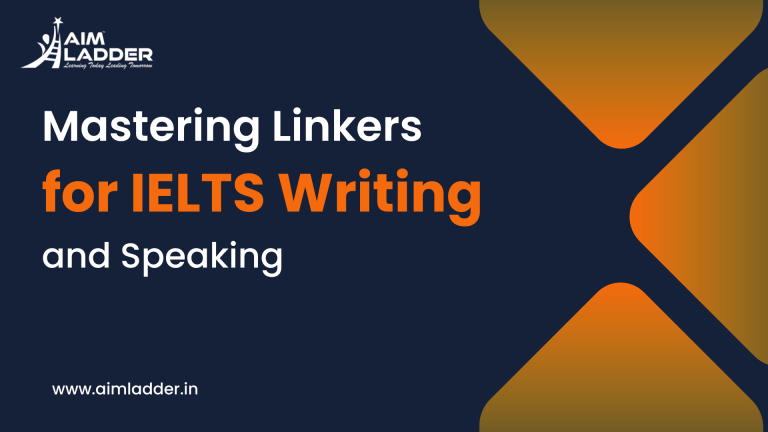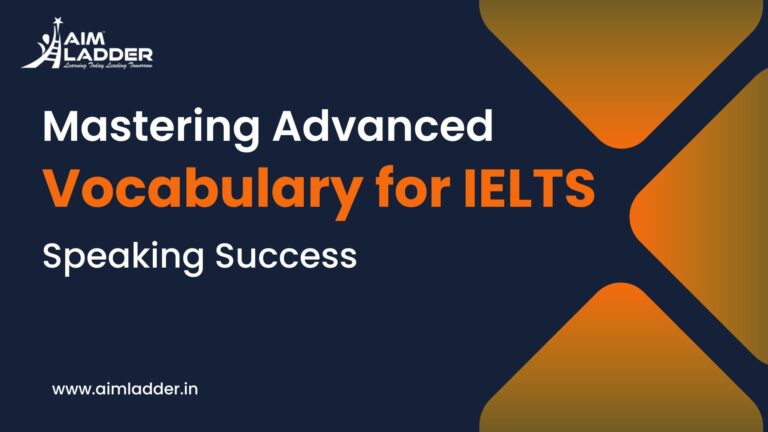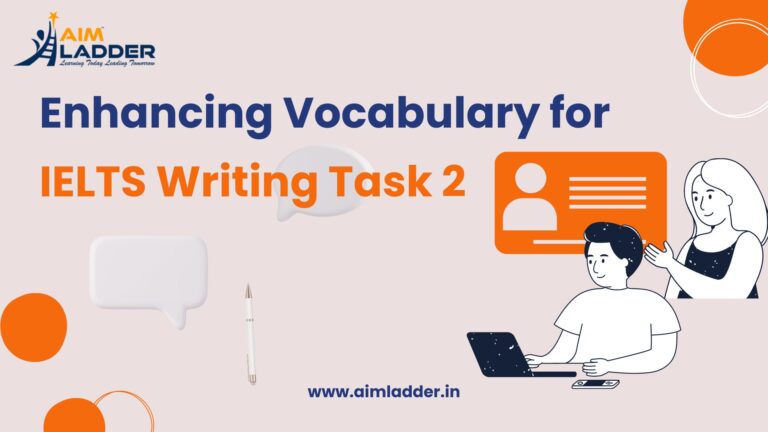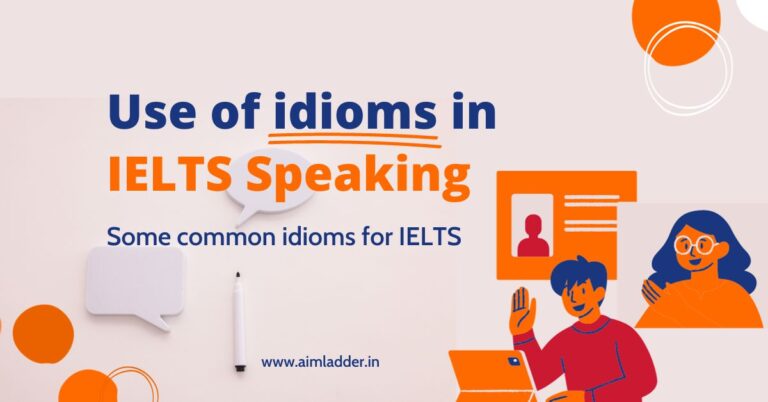- Services
-
-
Test Preparation
-
Study Abroad Services
Visitor, Tourist & Dependent Visas
-
-
-
- Study Destinations
-
-
Top Study Destinations
-
-
-
-
- About Us
- Contact Us
- Blog
The Importance of Vocabulary in IELTS: Boost Your IELTS Score
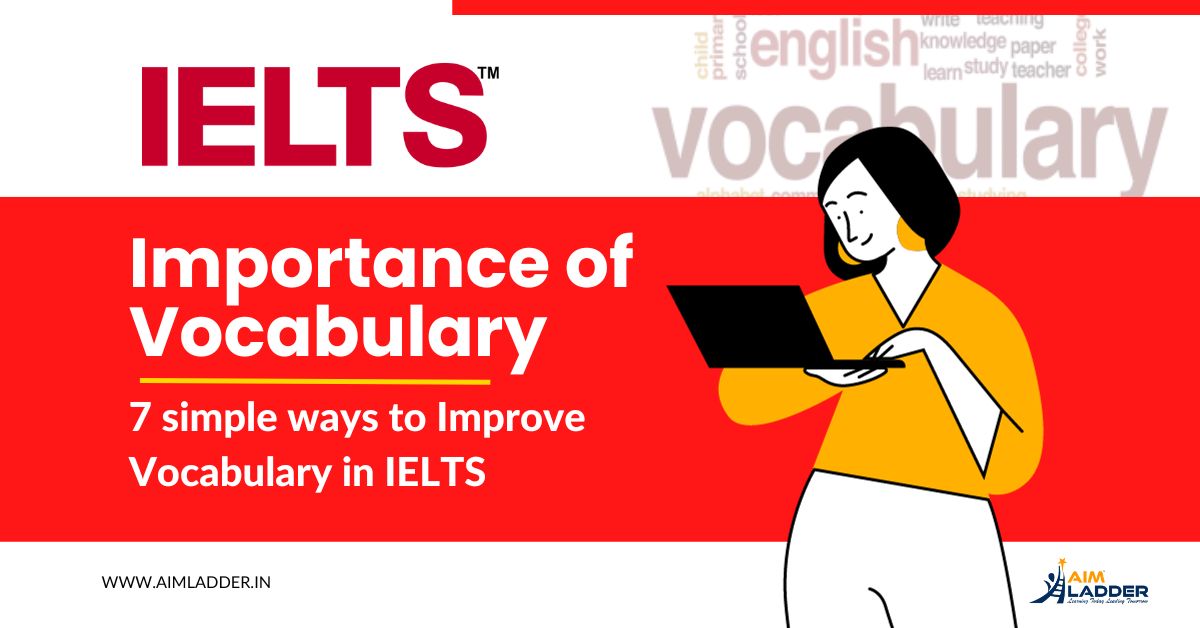
For anyone to score a higher band in the International English Language Testing System (IELTS), vocabulary plays a crucial role. A rich vocabulary is needed for achieving a high score in all four components of the test: Listening, Reading, Writing and Speaking. Having a strong command of vocabulary not only enhances your scores but also gives you the ability to understand and communicate effectively. Here in this article, we’ll explore the significance of vocabulary in IELTS and strategies to improve it.
Importance of Vocabulary in IELTS:
- Comprehension and Listening skills: Having a wide range of vocabulary enables the test takers to comprehend a vast range of topics and understand complex ideas presented in the audio.
- Reading Comprehension: A vigorous vocabulary aids in comprehending the passages encountered in the Reading section. It will allow the candidates to catch the context of the passages, identify the key ideas and interpret the meaning of new words.
- Writing and Speaking Coherence: Your vocabulary will enhance the coherence and cohesion in both your written and spoken responses. It will enable the candidates to express their thoughts precisely by using proper synonyms and idiomatic expressions to effectively convey their ideas.
How to Improve Vocabulary in IELTS?
As mentioned above, improving your vocabulary for the IELTS exam is crucial for achieving a higher score. Here are some effective strategies to enhance your word power:
7 simple ways to Improve Vocabulary in IELTS
- Reading: Reading exposes one to a wide range of vocabulary, therefore, it is suggested that IELTS students get involved in some kind of reading, either a book, novel, blog post, newspaper, magazine or anything of their choice.
- Applications and Websites: There are a number of online platforms like Duolingo, Quora, Archives, Freerice, Memrise, WordUp, BBC Learning English etc. that will help IELTS candidates to improve their vocabulary.
- Words and Collocations: Understanding word families like analyze, analysis, analytical, and collocations like making a decision, taking an exam, and running a mile, are crucial for achieving lexical accuracy. Do not only focus on individual words but also learn their associated forms and typical collocational patterns.
- Vocabulary List: Always keep a list of vocabulary you learn daily in order to go back at times when you feel like you forgot some of them. Note down their definitions and sample sentences for clearer understanding.
- Active Practice: Engage in active practices and put your knowledge into action by actively using the words that you learn. Try to speak in English on a regular basis to get rid of any kind of hesitation.
- Vocabulary in Writing: Make sure you’re incorporating the vocabulary that you’ve learned into written responses. Using advanced vocabulary, phrasal verbs and synonyms to present your response could make your score higher.
- IELTS Coaching: Enrolling in an IELTS coaching program, provides the opportunity to participate in valuable group discussions led by experienced trainers. These skilled instructors will motivate you to incorporate more advanced vocabulary into your conversations, ultimately fostering a practice that will significantly improve your performance in both IELTS writing and speaking tasks.
Conclusion
Try to utilize these resources to reinforce your vocabulary acquisition. If you make it your habit to practice regularly by using these strategies, you can easily score your desired band in IELTS and will be able to perform exceptionally in your academics. Practice will help you solidify your understanding and boost your confidence.
Lastly, vocabulary plays a pivotal role in achieving success across all sections. Having a strong vocabulary enhances comprehension, reading ability, coherence and fluency in all the modules. Implement these strategies and see the difference in your performance.
Frequently Asked Questions (FAQ)
Will my vocabulary affect my IELTS score?
Yes, vocabulary plays a very important role in determining your IELTS score. For a high score on the exam, you need a rich and varied vocabulary to express your thoughts precisely and coherently in both the written and spoken sections.
Why is vocabulary essential for the IELTS Speaking section?
In the Speaking section of IELTS, vocabulary plays a huge role in your ability to express ideas, provide detailed answers, and convey nuanced meanings. You’ll be able to avoid repetition, speak fluently, and answer questions accurately if you have a wider vocabulary.
What vocabulary topics I should focus on for IELTS preparation?
For IELTS preparation, it’s essential to focus on a variety of vocabulary topics. If you’re taking the Academic IELTS, you’ll need academic and general vocabulary, as well as subject-specific terminology. IELTS test materials often have themes like travel, technology, environment, education, health, and social issues. Expanding your vocabulary across these topics will help you communicate effectively in both the written and spoken sections of the exam. You should also try to learn new words that are relevant to your field of study. Additionally, look for words with similar meanings, as this can help you quickly understand the context and remember the new words. Finally, practice using these new words in your writing.
Can I use slang and informal language in the IELTS Speaking section?
No, it’s best to avoid using slang and informal language in the IELTS Speaking section. The exam assesses your ability to communicate in a clear, and formal manner. Using slang or overly casual language can negatively impact your score, as it may not demonstrate the level of language proficiency required for the test. It’s advisable to stick to standard and appropriate vocabulary and grammar during the Speaking test.
Do I need to use academic vocabulary for the IELTS exam?
Yes, incorporating academic vocabulary is essential for the Academic IELTS exam, particularly in the writing section. Academic vocabulary demonstrates your ability to engage with complex ideas and texts. However, in the IELTS Speaking section, a mix of general and academic vocabulary is recommended to convey your thoughts, especially if you’re discussing academic topics. For the General Training IELTS, focus on practical and everyday vocabulary.
How can I remember new vocabulary words for the IELTS exam?
To remember and retain new vocabulary words for the IELTS exam, it’s crucial to actively use and engage with the words. Read widely, practice speaking and writing with them, create flashcards for review, and incorporate them into your everyday conversations and IELTS preparation exercises. Consistent exposure and application will help solidify your understanding and retention of the vocabulary you need for the exam.
How can I avoid sounding artificial in my IELTS responses?
To avoid sounding artificial when using advanced vocabulary in your IELTS responses, focus on natural language. Use advanced words only when you are confident about their meaning and correct usage. Practice incorporating them into everyday speech and writing so that they become a seamless part of your language skills. Additionally, prioritize clarity and effective communication over complexity; choose advanced words when they genuinely enhance your response rather than to impress.
How can I enhance my vocabulary for the IELTS?
Enhance your vocabulary for the IELTS exam by regularly reading a variety of materials, such as newspapers, books, and academic texts, to encounter new words in context. Maintain a vocabulary journal, and practice writing essays and speaking responses. Engage in discussions, listen to podcasts, and watch documentaries in English to expose yourself to different accents and language usage.
Is vocabulary important for IELTS reading as well?
Yes, vocabulary is essential for the IELTS reading section. A strong vocabulary enables you to comprehend and accurately answer questions about the written passages. Without a good grasp of vocabulary, you may struggle to understand the nuances and subtleties of the text, which can significantly affect your performance in this section of the exam.
Still feeling indecisive? Book a free demo session!
Our certified trainers will guide you through the latest strategies and help you improve your overall performance.


